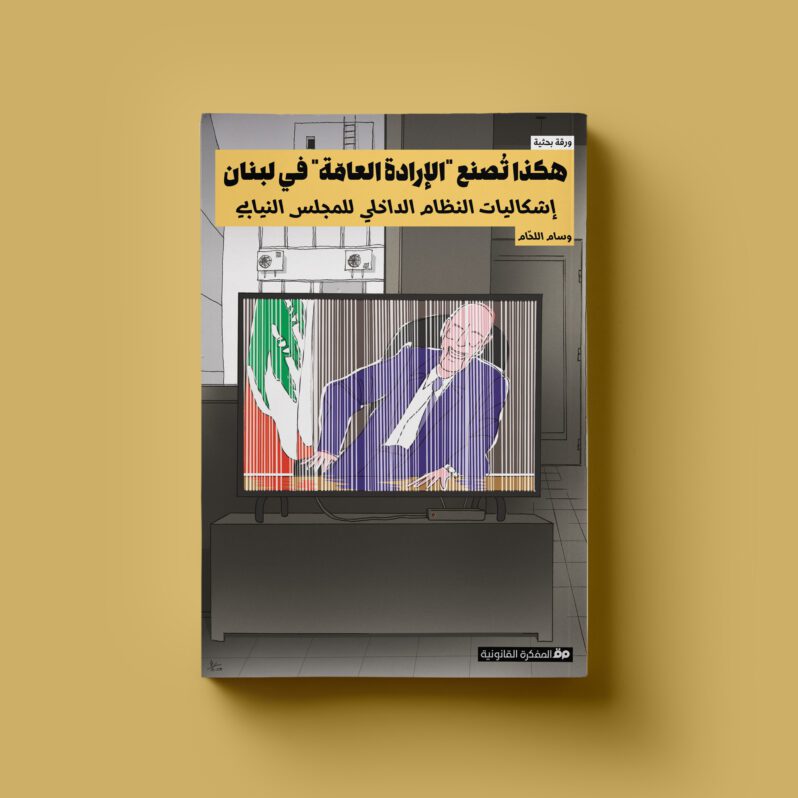Domestic Worker Passport Ruling In the Name of the Lebanese People The Summary Affairs Judge in Beirut

After examining all [relevant] documents,
And upon careful consideration,
Whereas the plaintiff, Ms. X, through her legal representative, Mr. Y, attorney at law, requests that her former sponsor be required to return her passport, which [the aforementioned sponsor] continues to unrightfully withhold;
Whereas the present matter raises the problematic issue of the existing relationship between migrant domestic workers and their employers, and of some practices known to be widespread and accepted by many. This especially concerns the practice of limiting the freedom of movement of migrant workers through various means, the least grave of which is perhaps that of their employers withholding their passports. This practice is based on many justifications such as [that claim that withholding the passport] guarantees that domestic workers will not leave [their employer’s] home and continue to work [there] throughout the duration of their contract;
Whereas a person’s passport is the document that allows them to travel and leave their country or the country in which they work, return to their country or go to any other; in a foreign country, their passport represents the principal means of identification for foreigners. It is also the main document [needed] for official procedures, whether to obtain residency permits or health insurance, or to benefit from any basic services;
Whereas the Preamble to the Lebanese Constitution states that Lebanon is “a founding and active member of the United Nations Organization and abides by its covenants and by the Universal Declaration of Human Rights. The Government shall embody these principles in all fields and areas without exception”. This Preamble represents an integral part of the Constitution and enjoys the same standing [as it does] in the hierarchy of laws. International treaties mentioned in the Preamble represent an integral part of the Constitution as well;[1]
Whereas Article 13 of the Universal Declaration of Human Rights states that “everyone has the right to freedom of movement and residence within the borders of each state”, and that “everyone has the right to leave any country, including his own, and to return to his country”;
Whereas Article 12 of the International Covenant on Civil and Political Rights – ratified in New York on December 16, 1966, and to which Lebanon is party under the law implemented in Decree No. 3855, dated September 1, 1972 – states that “everyone lawfully within the territory of a State shall, within that territory, have the right to liberty of movement and freedom to choose his residence”, and that “everyone shall be free to leave any country, including his own”;
Whereas Article 26 of the aforementioned Covenant states that “all persons are equal before the law and are entitled without any discrimination to the equal protection of the law. In this respect, the law shall prohibit any discrimination and guarantee to all persons equal and effective protection against discrimination on any ground such as race, color, sex, language, religion, political or other opinion, national or social origin, property, birth or other status”;
Whereas Article 4 of the International Convention on the Elimination of All Forms of Racial Discrimination states that “States Parties condemn all propaganda and all organizations which are based on ideas or theories of superiority of one race or group of persons of one color or ethnic origin, or which attempt to justify or promote racial hatred and discrimination in any form, and undertake to adopt immediate and positive measures designed to eradicate all incitement to, or acts of, such discrimination”;
Article 5 of the aforementioned Convention also states that “States Parties undertake to prohibit and to eliminate racial discrimination in all its forms and to guarantee the right of everyone, without distinction as to race, color, or national or ethnic origin, to equality before the law, notably in the enjoyment of” a number of rights listed the aforementioned article. Such rights specifically include “other civil rights, in particular: (i) The right to freedom of movement and residence within the border of the State; (ii) The right to leave any country, including one’s own, and to return to one’s country”;
Whereas it can be concluded from the abovementioned texts that freedom of movement constitutes a fundamental freedom – one which France’s Constitutional Council considered to represent a principle of constitutional value;
Whereas withholding a foreigner’s passport does not only lead to restricting their freedom to travel and leave the country, to return to their own country or go to any other; In addition, it prevents their safe movement within the country they are currently located in, by depriving them of their recognized official means of identification. It also deprives them of many of their other fundamental rights, as listed above – not least of which are the right to obtain a legal residency permit, and the right to legally benefit from [certain] services, especially health services. These are some of the most basic and fundamental rights enjoyed by migrant domestic workers, whether they remain employed or even in case they have left their employment;
Whereas the laws and regulations in effect, as well as current practices, impose financial burdens on employers in order to bring migrant domestic workers [into their employ]; [Such burdens] cannot in any way justify infringing on the fundamental rights of migrant workers, and withholding passports as a form of guarantee. Restricting [workers’] freedom of movement cannot be used to guarantee such financial rights, and to guarantee that [workers] will not leave [their] employment;
Whereas migrant [domestic] workers leaving their employer’s home does not in itself constitute a criminal act of any kind, but merely a contractual dispute or an unjustified breach of contract, and cannot justify withholding [their] passports; It should also be mentioned that the cases addressed usually result from passports being withheld by individuals, not by a public authority. This confirms the gravity and illegality of such a practice, as any restriction of freedom can only take place in exceptional cases, in accordance with a legal text, on the part of a public authority and under the supervision of a legal one;
Whereas it should be noted, in addition to all of the above, that the aforementioned practice also conceals unjustified discrimination between Lebanese and foreign workers, in breach of Lebanon’s international commitments; Indeed, it is usually restricted to female migrant domestic workers, as no case of a Lebanese passport having been withheld by an employer has ever come to light; Such discrimination has been expressly condemned, and not only in the abovementioned Convention; and
Whereas it is incumbent that the accused be required to return the plaintiff’s passport, in order to allow the latter to regularize her [legal] status and complete the procedures needed to leave the country. It should also be noted that [the plaintiff’s] lawyer has committed to completing [these] procedures at her own expense.
Therefore,
[The court] rules that:
The accused should be required to return the plaintiff’s passport immediately.
Ruling effective immediately, issued in Beirut on June 23, 2014.
Judge
Jad Maalouf
This article is an edited translation from Arabic.
For a commentary on this ruling, click here
__________________________________________________________________
[1] Excerpts from the Lebanese Constitution, the Universal Declaration of Human Rights, the International Covenant on Civil and Political Rights, and the International Convention on the Elimination of All Forms of Racial Discrimination were not placed under quotation in the original text.



